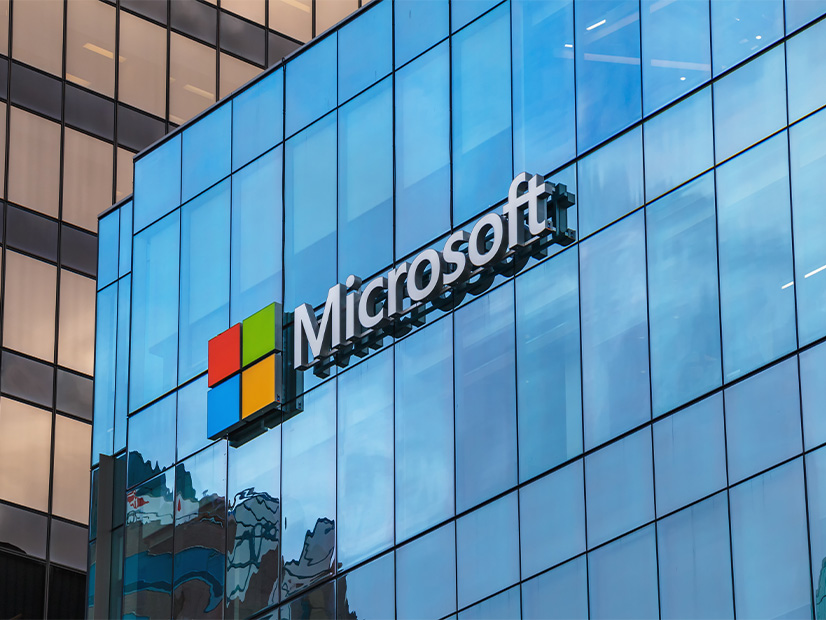
Microsoft (NASDAQ:MSFT) and PepsiCo (NASDAQ:PEP) took the No. 1 and 2 spots in a new ranking of 55 large U.S. companies for their work on net-zero targets and greenhouse gas emission reductions and disclosures.
“The good news is that progress is being made,” said Danielle Fugere, president and chief counsel of the nonprofit As You Sow and co-author of the report “Road to Zero Emissions,” released Thursday.
An examination of the top five U.S. corporations in each of 11 major sectors showed 50 companies are disclosing some of their climate emissions, Fugere said during a webinar on the report.
While the number of companies that adopt net-zero targets is increasing, the term “net zero” is not well defined and often does not align with the goal to limit global warming to a 1.5-degree Celsius increase, she said. Companies, she added, don’t always demonstrate whether they are reducing emissions directly or using carbon offsets, and few companies disclose emissions from, or set targets that cover, their value chains.
Value-chain emissions come from sources not directly associated with company operations or the energy that companies purchase or consume. They are difficult to track and can include, for example, companies’ franchise and investment activities or use of the products they sell.
About half of the companies in the report are achieving emissions reductions related to direct operations and energy, but their value-chain emissions represent “the vast majority of total emissions,” according to David Shugar, ESG and climate data analyst at As You Sow and co-author of the report.
Companies analyzed for the report received scores based on GHG emission reductions, disclosures and targets, with reductions showing the “greatest room for improvement,” he said.
Microsoft and Pepsi were among a group of six companies to earn the highest marks on GHG reductions by decreasing emissions at a rate necessary to meet a 1.5-C, net-zero by 2050 goal. There were 43 companies, however, that earned the lowest marks for either not disclosing emissions or not reducing direct and value-chain emissions in line with 1.5 C.
For GHG disclosures, most of the companies report their direct emissions, but Shugar said only 20 report their value-chain emissions. Microsoft, PepsiCo, Alphabet (NASDAQ:GOOGL), Johnson & Johnson (NYSE:JNJ) and Facebook (NASDAQ:FB) earned the highest marks for their disclosures, while Tesla (NYSE:TSLA) and Berkshire Hathaway (NYSE:BRK.A) earned the lowest marks. Only 11 companies, he said, report the number of offsets they are purchasing to meet their targets.
Looking at the companies’ GHG targets, 36 have set a GHG reduction goal, but some of the goals are not 1.5 C aligned, Shugar said. And Microsoft and Apple (NASDAQ:AAPL) were the only companies with targets for their value-chain emissions that address a 1.5-C goal, he said.
Energy Companies
Of the five energy companies that made the report, only Southern Co. (NYSE:SO) earned what the report described as a passing mark, ranking No. 8 overall. Southern scored well for disclosing its emissions, but it is among the companies that is not addressing its value-chain emissions.
While Dominion Energy (NYSE:D), Duke Energy (NYSE:DUK) and NextEra Energy (NYSE:NEE) also scored well for their emissions disclosures, none have set carbon-neutral goals for 2050 that cover direct or value-chain emissions, according to the report.
Berkshire Hathaway, parent company of MidAmerican Energy and PacifiCorp, took the lowest spot on the list, having not met any of the criteria in the report for GHG disclosures, targets and reductions.
To support companies that believe the report does not accurately represent their net-zero programs, Fugere said that As You Sow is creating an online reporting tool so companies can update the nonprofit’s database in real time. Future rankings will reflect the updates submitted to the database, she said.


